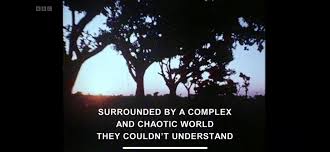The Impact of Adam Curtis on Documentary Filmmaking

Introduction
Adam Curtis, a British documentary filmmaker, has gained recognition for his unique storytelling approach that delves into the intricate narratives of modern society. His works, such as ‘The Century of the Self’ and ‘HyperNormalisation’, explore how power, politics, and media shape our lives. Curtis’s films not only captivate audiences but also provoke critical reflection on contemporary issues, establishing him as a significant voice in documentary filmmaking.
Key Works and Themes
Curtis has a distinctive filmmaking style that intertwines historical footage with narration, blending the realms of documentary and art. His 2002 documentary ‘The Century of the Self’ investigates how Freud’s theories have been applied to manipulate public opinion and consumer behaviour, highlighting the link between psychology and consumerism. Another notable piece, ‘HyperNormalisation’, released in 2016, critiques the complexities of the modern world, claiming that society has constructed a simplified version of reality amid chaos.
Through these documentaries, Curtis tackles themes of power, control, and deception, illuminating how these forces shape societal behaviours and beliefs. His incisive analysis reveals the often-hidden narratives behind significant historical events, inviting viewers to reconsider their understanding of truth and reality.
Recent Developments
In recent years, Curtis continues to influence contemporary discourse surrounding media and society. His latest work, ‘Can’t Get You Out of My Head’, aired on BBC iPlayer in early 2021, further explores the intricacies of human emotions and the societal structures that govern them. The six-part series has garnered attention for its ambitious scope and thought-provoking insights into individualism and interconnectedness in the modern world.
Curtis’s works remain highly relevant, particularly as society grapples with misinformation and the role of social media in shaping public narrative. His meticulous research and unique perspective offer valuable tools for viewers to navigate the complexities of our time.
Conclusion
The significance of Adam Curtis’s contributions to documentary filmmaking cannot be overstated. His ability to weave together complex themes with engaging visual storytelling encourages audiences to question the information presented to them. As the world continues to evolve, Curtis’s insights will serve as a critical lens through which we can understand the past, reflect on the present, and anticipate the future. With growing attention to his work, it is likely that Curtis will continue to stimulate dialogue around pressing issues, maintaining his status as a pivotal figure in the world of documentary cinema.








